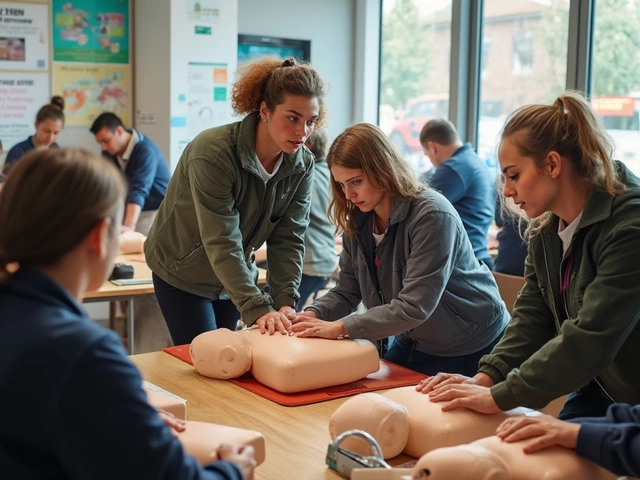Computer Science – Your One‑Stop Hub for Tech Training & Careers
Welcome to the computer science tag. Here you’ll find straight‑forward guides that help you learn new skills, pass hard exams, and land a tech job. We keep the language simple, the advice practical, and the focus on what matters to you right now.
Whether you’re just curious about coding or you already work in IT and want the next certification, the articles below give clear steps you can follow today.
Top Articles on IT Certifications
What is the Hardest IT Certification to Earn? breaks down the toughest exams, explains why they’re difficult, and shares study tricks that actually work.
Is IT Certification Hard? Real Stories, Tips, and Data for UK Learners looks at the UK market, shows stats on pass rates, and gives you a realistic study plan.
Highest Paying IT Certification Without a Degree lists the certs that pay well even if you don’t have a university diploma. It also tells you the typical salary you can expect.
Do Employers Really Value Google Certificates for Hiring in 2025? explains how hiring managers view Google’s online credentials and whether they help you get an interview.
These pieces are written for people who want clear guidance without a lot of jargon. Skim the headings, pick the article that matches your goal, and start applying the tips right away.
How to Get Started in Computer Science
First, decide which area excites you most. Coding, networking, data analysis, and cybersecurity all fall under computer science, but each has its own learning path.
If you like building things, start with a beginner’s programming course. Python is a good first language because it’s easy to read and used in many jobs.
For those who prefer hardware, look at basic networking or entry‑level CompTIA A+ material. These topics give you a solid foundation for support roles.
Got a specific job in mind? Check the salary data in our certification guides. Knowing which certs pay the most helps you pick the right one and avoid dead‑end study time.
Set a realistic schedule. Even 30 minutes a day adds up. Use free resources like YouTube tutorials, then move to a structured course when you need deeper coverage.
Practice is key. Build a simple project – a personal website, a small script that automates a task, or a home network setup. Real‑world experience looks great on a CV and helps you remember what you learn.
Finally, join a community. Forums, Discord groups, or local meet‑ups let you ask questions, share progress, and stay motivated. Learning with others beats going it alone.
All the articles on this tag are aimed at making your computer science journey clear and doable. Dive in, pick a guide, and start building the skills that will get you the tech job you want.




